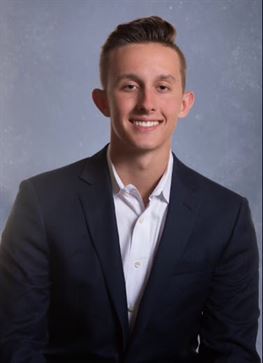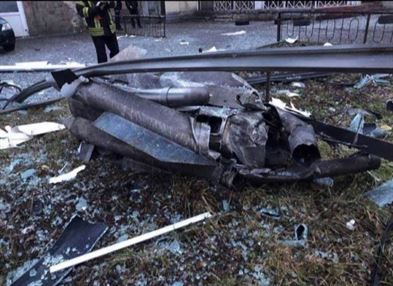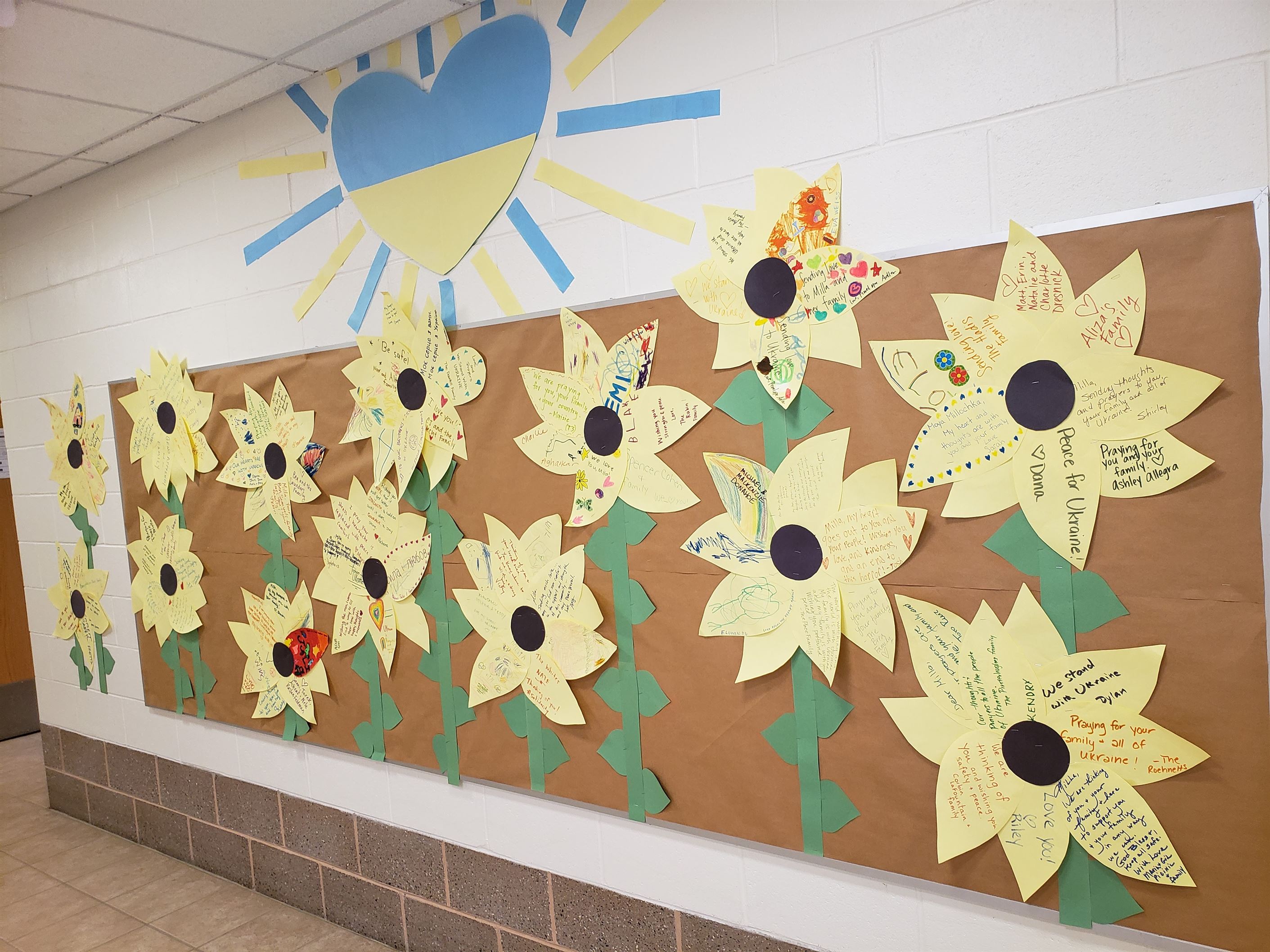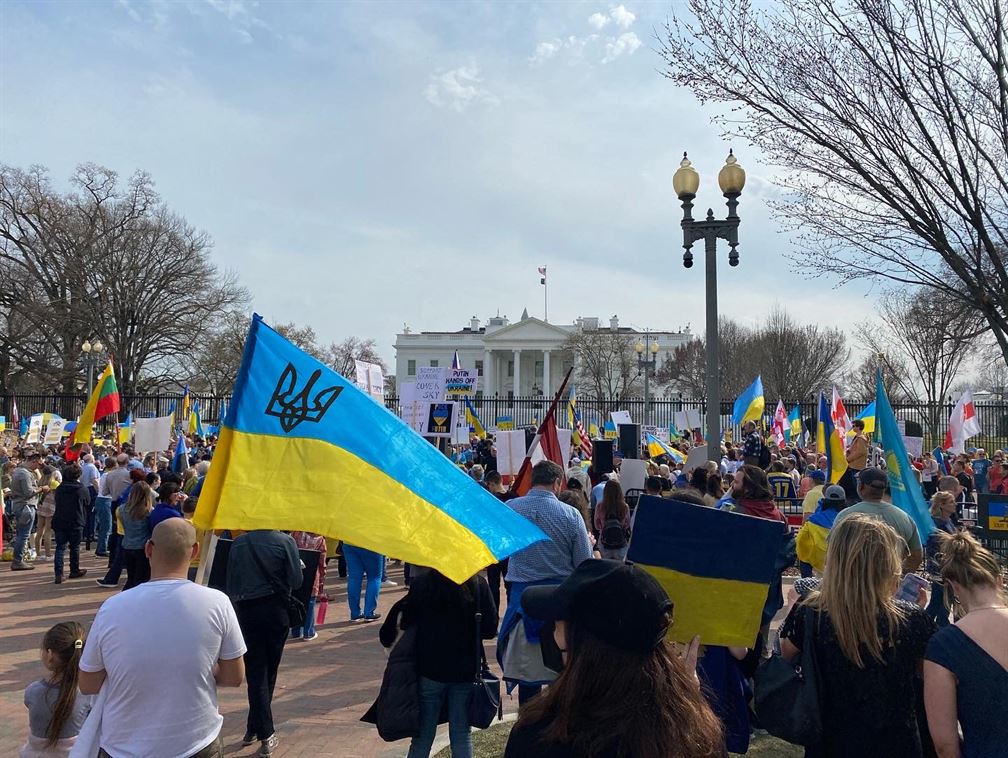Russia launched a full-scale invasion of Ukraine on Feb. 24, 2022, the culmination of over two decades spent by Vladimir Putin escalating tensions between the two nations.
Since taking control of Russia in late 1999, Putin gradually solidified power for himself, seizing dictatorial power and packing his inner circle with elites who agree with his revisionist mindset.
Putin said Ukraine has never been a legitimate state in February 2022, just eight years after illegally seizing Crimea from Ukraine following the deposition of their pro-Russian leader, Viktor Yanukovych.
Many Ukrainian-American students and employees at Montclair State University have been drastically impacted by the war.
Olena Nesteruk, an associate professor in the department of family science and human development, shared how the war has emotionally affected her knowing that most of her family members reside in Ukraine.
“Saying goodbye to my parents every day, not knowing if we would speak again and if my children would get to see their grandparents, has been very difficult,” Nesteruk said. “Although my parents are in relative safety, my heart is breaking for all Ukrainian people.”

David Kasoff, a Montclair State sophomore of Ukrainian descent, shared his experience of having family and friends living in Ukraine at the time of the invasion.
Photo courtesy of David Kasoff
David Kasoff, a sophomore jurisprudence and philosophy major, said when the Russian military began its assault on Ukraine one month ago, his reaction was one of fear and shock, but sadly expected.
“Two months before the invasion, Putin had bombed an entire school in a Ukrainian city,” Kasoff said. “One of [my cousin’s] very good friends that lives there, Natalia, her entire home had been destroyed by a missile.”

A shell from a rocket in the front yard of Natalia, a friend of David’s cousin, on Feb. 27, just three days after the start of the invasion.
Photo courtesy of David Kasoff
The destruction following the onset of the invasion was immediate, by March 15, the mayor of Kharkiv, Ukraine’s second-largest city, stated that over 600 buildings were damaged.
Many expressed worries for their loved ones in Ukraine, with some having stayed behind to fight and others joining the nearly 4 million refugees that have fled westward, half of which are children.
Lyudmyla Yakubov, the director of the Ben Samuels Children’s center, has been having trouble staying focused at work due to the ongoing crisis.
“I had to take a few days off, I could not work,” Yakubov said. “Focusing on typical daily tasks is harder these days, intense emotions run a rollercoaster.”
Yakubov shared a bulletin board of sunflowers, the national flower of Ukraine, made by the families and staff of the children’s center, in a display of healing.
The sunflower has become a powerful symbol, being used to represent peace: a viral video showed a Ukrainian woman offering sunflower seeds to Russian soldiers, so that flowers may grow when they die.

A board of sunflowers in the Ben Samuels Children’s Center at Montclair State. The sunflowers are adorned with messages standing in support of Ukraine, and offering prayers to its people.
Photo courtesy of Lyudmyla Yakubov
Viktor Turchyn, the manager of computing lab services at Montclair State, said he fears for his family.
“I was encased in fear for my family and all the people living in my homeland not knowing what will come next and what fate awaits them,” Turchyn said. “My wife’s cousin who lives in Kyiv, called her in panic and tears, asking in despair to do something to stop the war.”
Turchyn also encouraged people to continue following the crisis in Ukraine.
“The news headlines tend to quickly change and people should not drift away from the unprovoked war that Russia has started in Ukraine,” Turchyn said. “They should demand that the U.S. government steps up and does more to put an end to this war sooner than later so that more innocent lives are preserved.”
Turchyn further highlighted how important it is for Montclair State’s administration to acknowledge and share where they stand on this issue, in addition to providing their support to students and employees who are currently affected by the war.
Halyna Hotsko, the associate director of capital procurement at Montclair State, said her family is doing everything they can to help Ukrainians.
“They are very scared, but brave,” Hotsko said. “[My family] is doing what they can to stop this war. Most of them are volunteers — helping with humanitarian aid, helping and hosting displaced citizens. Some are making camouflage nets.”
The Ukrainian community of Montclair State also advised on how students can help the people of Ukraine, channeling the anxiety the war has brought to many.
Several organizations, such as UACCNJ, Razom for Ukraine and Stop Putin, either accept donations to aid in humanitarian relief efforts in Ukraine or organize rallies to bring attention to the situation.
Yakubov also said students should connect with their peers whose college experiences are indefinitely interrupted.
Looking towards the current status of war, which at the moment is facing a stalled Russian offensive, due to demoralized military and equipment losses, Nesteruk pointed out the courage of Ukrainians.
“Ukrainians are hard-working, generous, and peaceful people,” Nesteruk said. “They are resisting the invading Russian army and are defending their nation from genocide and destruction. Ukrainians are also fighting for the whole world, against terrorist Putin who threatens nuclear war. Ukrainians are fighting to protect freedom, democracy, territorial integrity and peace around the world.”



